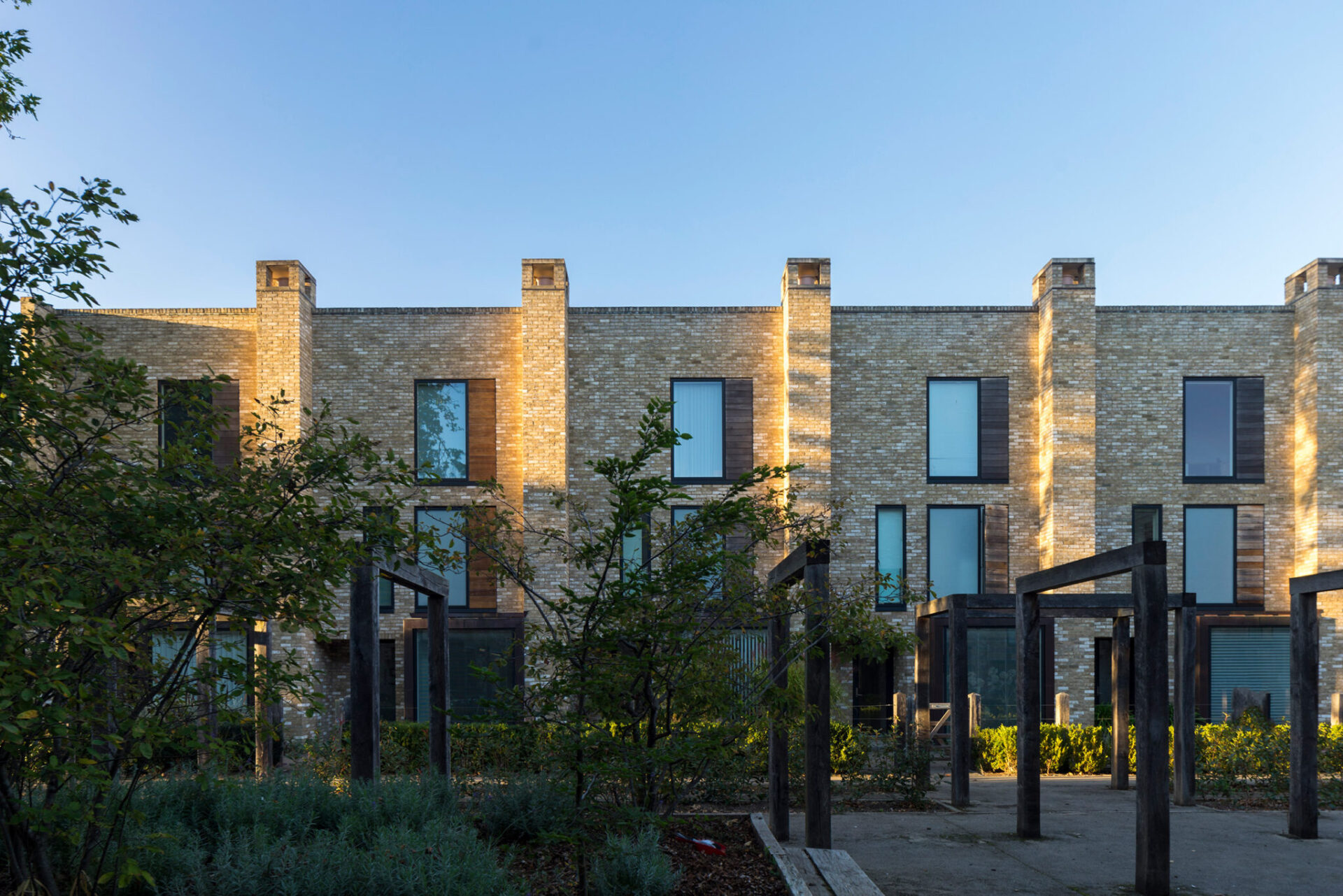
Has England’s property industry got (mostly) what it wanted?
It may be two years since Boris Johnson left Downing Street, but his most enduring political legacy lives on. Everyone recalls “cakeism” – not just for the sugary goods strewn across Whitehall’s pandemic party scene – but for the rampant dishonesty infecting politics. Even Johnson’s safe space (AKA the Daily Telegraph) called it out in this withering attack.
Although the clowns have gone – for now – their cakeist rhetoric seems to have caught on in neighbouring governments. Interventionist housing policies promising voters rent cuts, better quality homes and increased supply in the same breath have shown a startling disregard for any sort of economic reality. Worse, there has been a total unwillingness to listen or engage with experts.
Sound familiar?
In contrast with many critics’ views and with the chaos being sewn close by in Scotland and Ireland, English housing reforms set out by Labour earlier this month, have no scent of market intervention at all. Put next to the planning reform also proposed – and the clear desire to rip up the unworkable elements of previous meddling – England’s property industry has got most of what it wanted.
Almost. Let me come back to that shortly.
Scottish rent caps stymie investment
So what’s happening in Scotland and Ireland? In Scotland, a temporary 3% rent cap and evictions ban expired in April, with a predictable flurry of rent hikes and evictions following immediately thereafter. The Cost of Living (Tenant Protection) Act 2022 and the subsequent housing (Scotland) bill have deterred around £3.2bn of investment, holding back more than 15,000 new homes.
This is pretty seismic.
The Private Housing (Tenancies) Act 2016 originally enabled councils to apply for rent caps – and it was feared that similar rules would come in for England. One vocal opponent has been Get Living, notably exiting its £200m Glasgow scheme as Green Street News reported earlier this year, following the rent caps introduced in Scotland. Now, institutional investors have told ministers they are “not resistant to rent controls” provided there is the certainty, clarity and consistency required to attract this investment.
Scotland’s government seems to have got the message and the mood music is improving. First minister John Swinney, speaking about the government’s Programme for Government, outlined changes to its housing bill.
“In progressing our proposals for rent controls, we will introduce amendments at stage two of the housing bill to ensure that tenants have the protection they need, and that Scotland is able to attract more investment to supplement the investment we are making through the public finances,” he said.
Office for National Statistics data shows average rents in Scotland increasing more rapidly than in England or Wales. In the year to April 2024, they went up by 10% in Scotland, compared with 8.9% in England and 8.2% in Wales. There is a clear link.
Labour shadow economy secretary Daniel Johnson said at the start of September that “the housing bill in its current form is unsupportable”. “We have a supply problem and the government is trying to fix that with demand measures, but unless they fix the supply issue everything else will get worse,” he added.
The Irish situation
As Green Street News reported in July, the Irish situation is more complex. An initial rent cap of 4% was lowered to 2% without any regard for high inflation or the costs of maintenance. Or the fact that investors had structured their investments around a policy set at 4%.
Initially, purpose-built student housing (PBSA) had been exempted from the rent cap, due to its strategic importance in supporting the higher education sector, but that changed in 2021 just before inflation picked up. Then, in a surprise move and having refused to engage at all with the PBSA sector, the Irish government restricted student rentals to 41 weeks, meaning providers cannot only offer 51 week contracts to students.
Worse, it did so at the end of July causing huge amount of confusion everywhere given how most PBSA providers lease buildings up early in the year. The Residential Tenancies (Amendment) Act 2024 was rushed through without any industry engagement at all.
Aside from the obvious warnings about how these moves will deter investment, the 41-week rule ignores three important realities. First, it’s uncompetitive. A person renting a normal buy-to-let flat or HMO would sign a 12-month tenancy. The poor quality and rampant rent hikes in the buy-to-let sector, which now accounts for more than 80 percent of Ireland’s housing market is the real focus.
Second, and more importantly, the change undermines the safety of students and the way buildings are run.
Most universities attract lots of global students and many of those young people will stay for the full year. Ministers argue that PBSA providers are still free to have tenants in all year if they choose to – which is true. But, by removing the ability to rent rooms for the full year, it raises the possibility of student digs being let out over the summer to tourists to make up for lost revenue.
Many parents do not want their kids to be waking up to stag parties or other random people who could reasonably pose a safety risk to students. The irony here is that safety is one of the big things the Irish government wants to tackle the very thing which high-quality PBSA accommodation offers.
Thirdly, it risks hurting higher education, one of the economy’s cash cows. Universities contribute an estimated €10.65 billion annually to the Irish economy if you adjust a 2019 study by the Irish Universities Association for inflation. But moreover, more than six in 10 (62.3%) of people aged 25-34 in Ireland had a third level qualification in 2022, according to CSO data. This was the highest rate in the EU27 and over 20 percentage points higher than the EU27 average of 42.0%.
The Irish government should be jumping all over the country’s global appeal and its domestic appetite for education. Rather than playing populist policies that will cause long term damage, it should listen to some of the economic realities and have the decency to engage with business.
While it’s too early to chart the immediate impact of this, investment from foreign investors has all but paused. The anti-capitalist sentiment fails to recognise that many developers’ funds come from pension funds and seek long-term clarity, as mentioned in the context of Scotland.
It will also cause a headache for higher education minister Patrick O’Donovan as universities need to be even more competitive now in a global marketplace.
One glimmer of common sense emanated from the Taoiseach, Simon Harris who, speaking in The Journal, said that “including student accommodation into the housing targets also needs to happen”.
Taoiseach Simon Harris has made more positive noises about the sector “I think there’s very real issues around why student accommodation isn’t currently included in housing targets. We need to. I think there’s a consensus around that, because for every student accommodation bed you build, you’re actually freeing up maybe a three-bed semi for a family to rent or buy. So, there’s a knock-on effect there,” he added.
He needs to ask his housing minister Darragh O’Brien to consider the knock-on effects of his wider set of policies. With student numbers rising across mainland Europe as France, Spain and Germany offer more English language courses, Ireland risks getting left behind.
What rent caps really mean
A 2018 study by the LSE helpfully goes into some of the grey areas around rent caps, pointing how they drive up rents in non-regulated sectors – which is precisely what has happened in Ireland. The report also sets out the damaging impacts where they are used without engagement and noting how such measures need to be considered within the wider toolkit of policies.
These points are all well-known, yet constantly ignored. Landlords have responded in both Ireland and Scotland by withdrawing properties from the wider rental market. In England meanwhile, while there have not been any rent caps, the removal of juicy tax breaks for buy-to-let investors has seen 400,000 landlords exit England’s market, per CBRE.
The net result is that policy needs to focus on developing more rental housing, with specific focus given both to BTR and, as Ireland’s Taoiseach Simon Harris said, to PBSA.
For England, its main outstanding challenges will be ensuring that planning more firmly supports institutional investment. One core challenge on Labour’s rental reforms will be the proposal that tenants can serve two months’ notice from day one of a tenancy – effectively undermining any contractual obligation.
This wouldn’t be allowed in a mortgage agreement, a phone or TV contract.
And it will create problems for valuers and asset managers, potentially undermining the very supply that planning reforms from chancellor Rachel Reeves and deputy prime minister Angela Rayner hope to fix.
Fixing the overloaded courts so that evictions can be properly processed will also be critical, amid a wider set of issues with Britain’s creaking criminal justice system.
That said, housing minister Matthew Pennycook, a south-east London MP who will have seen immense investment in his consistency of Greenwich and Woolwich, is all over his brief. He seems willing to engage and willing to listen. Investors need to recognise when they’re in a good place and help politicians better sell the story of institutional investment.
It really isn’t hard.
The focus on putting customers first is something that makes sense for everyone. The sugar rush of populist polices might satisfy a few tabloid headline writers. But who wants their political legacy to become mere chip paper?



